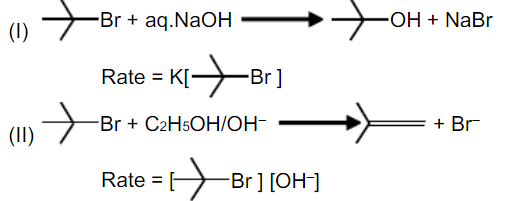Statement A : Action and reaction act on two different bodies
Statement B : Action, reaction never cancel each other
A & B are correct
A & B are wrong
A is correct and B is wrong
A is wrong and B is correct
The correct Answer is:A
To solve the question, we need to analyze the two statements provided:
Statement A: Action and reaction act on two different bodies.
Statement B: Action and reaction never cancel each other.
1. Understanding Newton's Third Law of Motion:
- According to Newton's Third Law, for every action, there is an equal and opposite reaction. This means that forces always occur in pairs.
2. Analyzing Statement A:
- The statement claims that action and reaction act on two different bodies. This is true because, for example, if a person pushes a wall, the person exerts a force on the wall (action), and the wall exerts an equal and opposite force back on the person (reaction). Since these forces act on different bodies (the person and the wall), Statement A is correct.
3. Analyzing Statement B:
- The statement claims that action and reaction never cancel each other. This is also true because for two forces to cancel each other, they must act on the same body. Since action and reaction forces act on different bodies, they cannot cancel each other out.
4. Conclusion:
- Both statements A and B are correct. Therefore, the answer to the question is that both statements are true.
Final Answer:
Both Statement A and Statement B are correct.
---
Statement B: Action and reaction never cancel each other.
- According to Newton's Third Law, for every action, there is an equal and opposite reaction. This means that forces always occur in pairs.
- The statement claims that action and reaction act on two different bodies. This is true because, for example, if a person pushes a wall, the person exerts a force on the wall (action), and the wall exerts an equal and opposite force back on the person (reaction). Since these forces act on different bodies (the person and the wall), Statement A is correct.
- The statement claims that action and reaction never cancel each other. This is also true because for two forces to cancel each other, they must act on the same body. Since action and reaction forces act on different bodies, they cannot cancel each other out.
- Both statements A and B are correct. Therefore, the answer to the question is that both statements are true.
Both Statement A and Statement B are correct.
Similar Questions
Knowledge Check
Action and reaction act on the :
Asame body in opposite directionsBdifferent bodies in opposite directionsCdifferent bodies, but in same directionDsame body in same direction.
STATEMENT -1 : Action and reaction acting on a particle cancels each other .
STATEMENT -2 : Action and reaction pair acts on different particles .
STATEMENT -3 : If an object is placed on a table then normal reaction by the table and weight are action reaction pair and they cancel each other .
View SolutionThe action and reaction both act simultaneously.' Is this statement true ?
View SolutionThe action and reaction are equal in magnitude'. Is this statement true ?
View SolutionHow are involuntary actions and reflex actions different from each other?
View Solution
Correct statement regarding these two reaction I and II
View SolutionComment on the statement 'the sum of action and reaction on a body is zero'.
View SolutionAssertion :− A block is hanged from spring. Spring force on block gravitational force on block are not action and reaction pair.
Reason :− Action and reaction force acts in opposite direction.
View Solution
